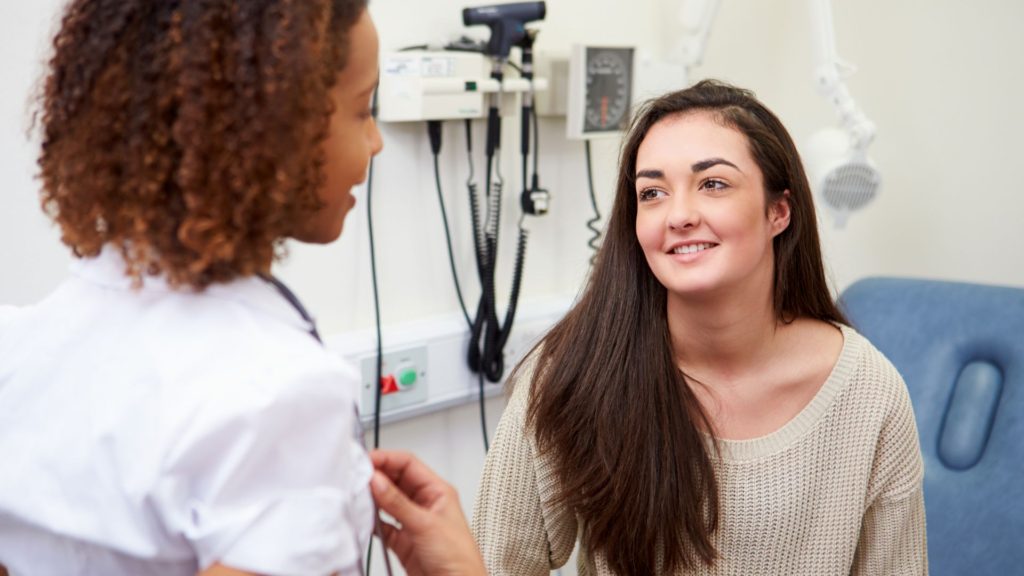As a gynecologist, I know that the thought of an appointment in an office like mine can make people of any age feel nervous. That can be especially true when it comes to someone’s very first visit. Let’s break it down to help you and your child feel prepared and comfortable when the time comes!
When should someone start seeing a gynecologist?
The American College of Obstetricians and Gynecologists (ACOG) recommends the first reproductive health visit between the ages of 13-15. Many pediatricians feel comfortable with this type of care, while others may not. It’s important to establish expectations with your child’s pediatrician regarding the degree this will be addressed in their office and if they recommend additional care with a gynecologist. Some gynecologists specialize in pediatric and adolescent care to address specific concerns.
What might happen on the first visit?
The first visit is all about opening up the conversation about sensitive topics like periods, body changes, mental health, gender, and sexuality. Even in the most trusted relationships between children and their caregivers, these can be difficult or embarrassing subjects, and the opportunity to discuss these issues privately with the doctor or other healthcare professional is encouraged. We’ll focus on your child’s thoughts, feelings, and actions around these topics and educate them regarding how to stay healthy.
Will there be an exam?
We will measure vital signs like blood pressure, height, and weight and typically perform a general medical exam, including listening to the heart and lungs and taking a feel of the belly if that hasn’t been done recently. Unless specific concerns are addressed, a pelvic exam is not recommended – and even then would never be done without specific counseling and consent. Many of us will talk through what a pelvic exam is like at some point before it ever needs to be done so that people can feel prepared. We’ll talk through the anatomy, what we will be assessing, and how we perform that assessment. We might show them a speculum (“the crazy duck bills!”) and explain how it works.
When should a pelvic exam be performed?
Pelvic exams can provide us with information we cannot see or determine from the outside. A pelvic exam may be recommended when someone has concerns like abnormal bleeding, irritating discharge, or pelvic pain. We will discuss a pelvic exam if there has been known or potential exposure to sexually transmitted infections. However, we can test for some infections via urine or a patient-collected swab. We recommend starting pap smears – screening for cervical cancer – no sooner than age 21, and we do use a speculum to visualize the cervix in order to collect that sample.
What else might be done?
We will talk through health history and make sure there is a plan for follow-up for any non-gynecologic issues. We will discuss getting up to date with vaccinations if needed. We might send prescriptions for medications for bothersome period symptoms or birth control.
The gynecologist’s office can feel scary – but it doesn’t have to be! We’re here to empower your child in their reproductive health now and for years to come.

Dr. Erin Stevens sees patients at the Edina location of Clinic Sofia, a leading OBGYN clinic known for its personalized approach to women’s health care. She is a member of the American College of Obstetrics and Gynecology and the author of the book, Unexpected: A Postpartum Survival Guide. Learn more at clinicsofia.com.




















